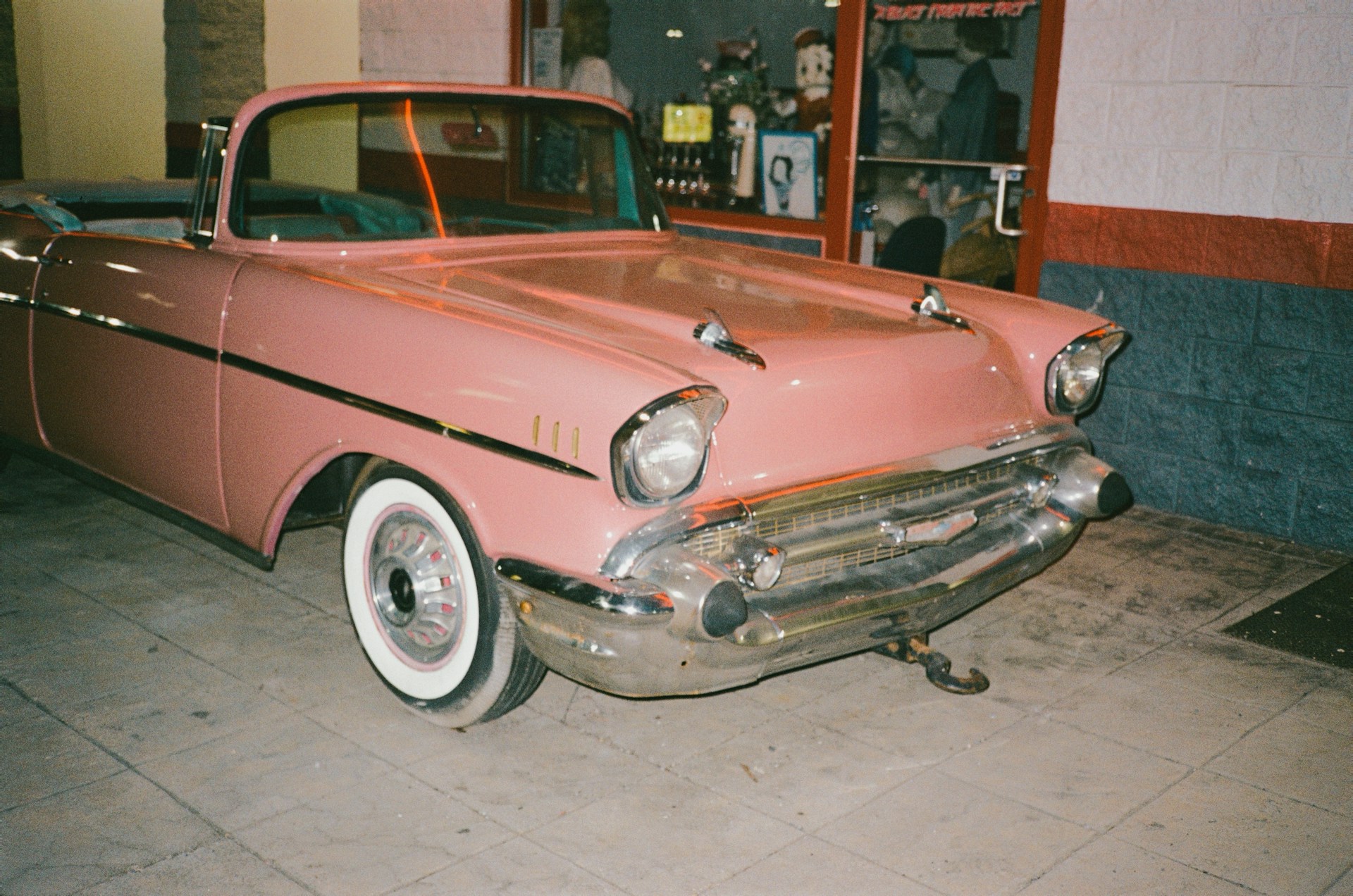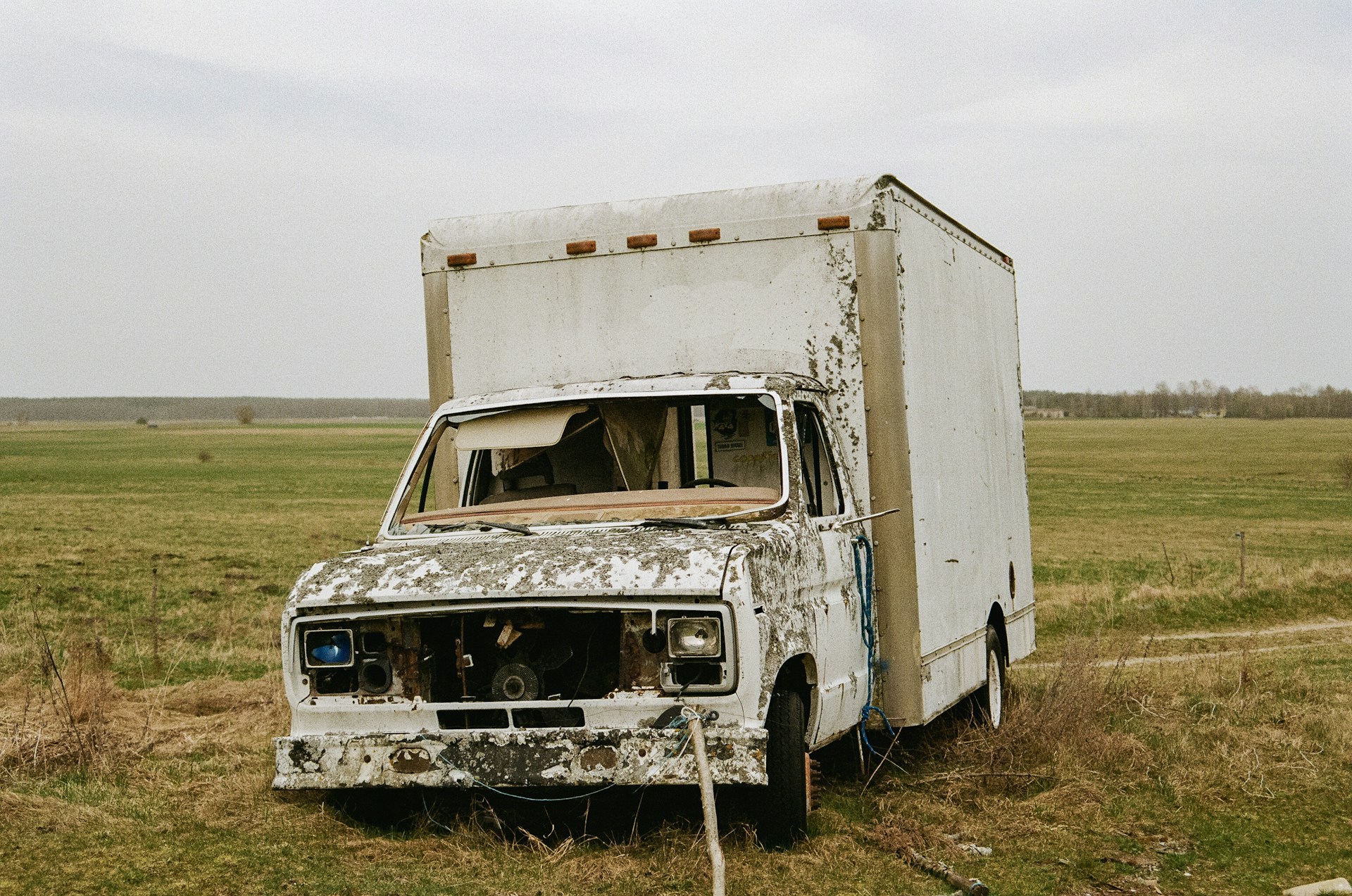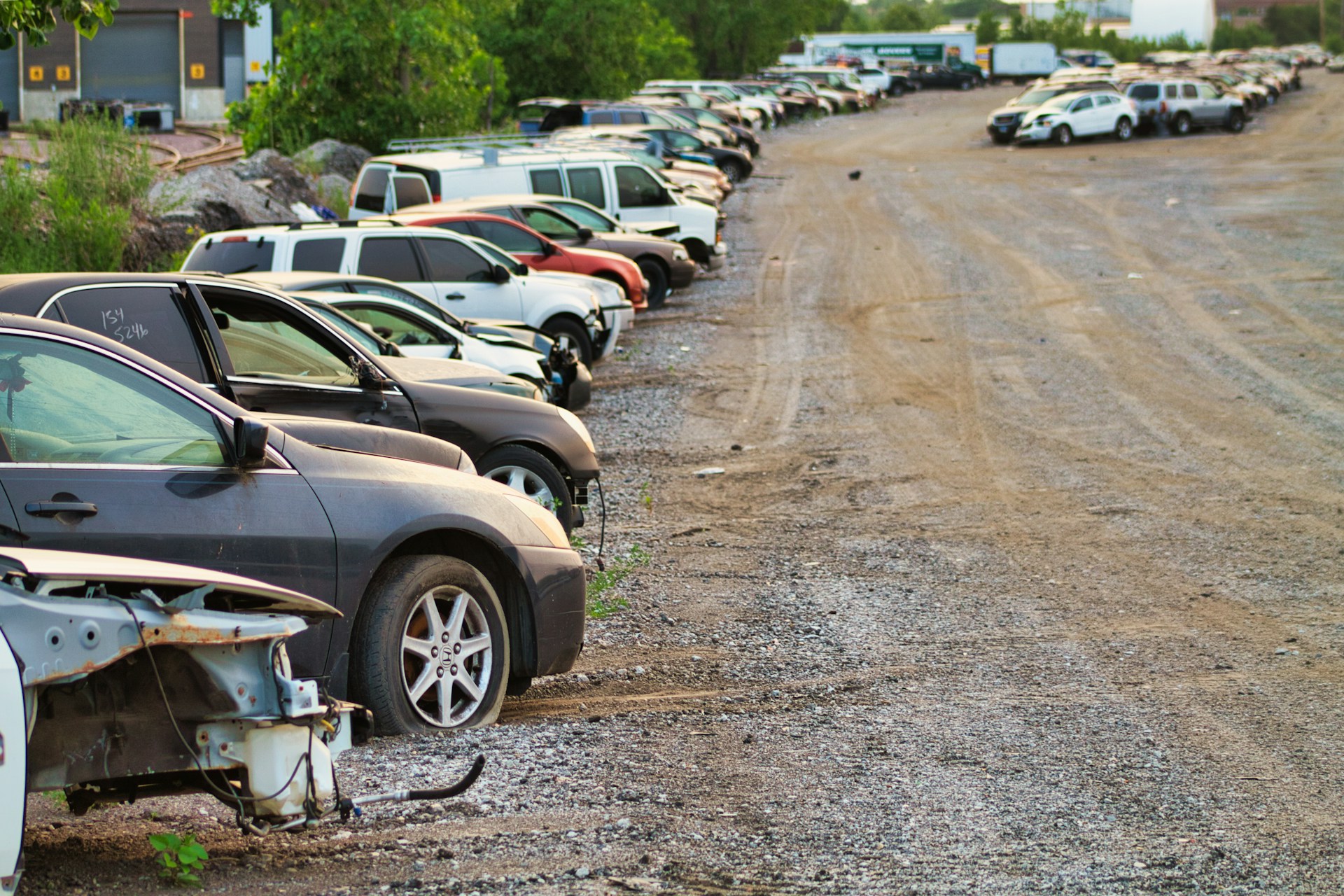Contents
- What Is a Salvage Title?
- How Do Salvage Titles Work?
- Different Kinds of Damage
- Should You Buy a Salvage Title Car?
- What Are the Pros and Cons of a Salvage Title Car?
- Who Should Buy a Salvage Title Car?
- How to Insure a Car with a Salvage Title?
- How Much Is a Salvage Title Car Worth?
- How to Buy a Car with a Salvage History: Tips and Tricks
- Final Words: A Beginner's Guide to Salvage Title Cars
- Frequently Asked Questions
When it comes to car buying, everyone wants a deal, especially when dealers are stingy with discounts and used cars are becoming more expensive. More and more car buyers are discovering that purchasing a salvage title car is a pathway to a bargain.
However, understanding what’s involved with salvage title cars is essential because of the fundamental differences between purchasing them and normal used cars. Read on as we answer the question “What is a salvage title?” and explore everything there is to know about buying this kind of vehicle.
What Is a Salvage Title?
Salvage titles are a type of title branding that shows a vehicle has been damaged and determined to be a total loss (totaled) by a car insurance company that paid a claim to the vehicle’s owner. To be more specific, title branding is a permanent designation on a car’s title, which indicates the vehicle has undergone extensive damage and is not suitable for resale as a standard car.
For instance, a car involved in a head-on collision may be deemed too expensive to repair by an insurance company. In this situation, the completely wrecked car will be declared a total loss and the title then changed to salvage status.
How Do Salvage Titles Work?
Once an insurance company deems a car totaled, it pays the claim and takes possession of the vehicle. The company then files with the state department of motor vehicles to change the car’s title status to salvage. To recover some claim money, an insurer usually sells the salvage title car through an auction. An owner who keeps either a totaled car or an uninsurable vehicle must apply for a salvage title.
When is a salvage title issued?
Most states require a salvage title designation when the car:
- has received serious damage, making the car unrepairable under normal circumstances; primarily due to the cost of repairs exceeding a certain percentage of the car’s value
- no longer meets safety standards
- has been stolen (and is recovered)
Many states mandate a specific formula determining when a damaged vehicle has crossed the threshold to become a salvage title car. Generally, if the cost of repairs exceeds 70% of the vehicle’s estimated market value (at the time of accident or theft), a total loss is declared. The precise loss-to-value ratio may vary depending on the state.
Different Kinds of Damage
Salvage titles can result from many circumstances, including:
- Accident: A traffic collision resulting in severe vehicle damage (often to the frame) is the most likely reason for a car to be totaled and designated as salvage. According to the National Highway Traffic Safety Administration, more than 14,000 car accidents (of all intensities) occur every day in the U.S.
- Flooding: Vehicles caught in rising or storm waters usually become salvage cars due to flood damage.
- Hail: Hail damage is another reason for a car to become salvaged due to the expense of body shop repairs (not all states permit hail damage as a reason for a salvage title declaration).
- Fire: Whether the fire comes from inside the car or the car is damaged during a building fire, a salvage title designation is likely in many cases of fire damage.
- Natural Disasters: In addition to floods, hail, and fire, cars can also be damaged from earthquakes, hurricanes, lightning strikes, and other acts of nature.
- Theft: Depending on state law, a stolen vehicle may get salvage title branding, particularly if it’s not recovered right away or is stripped for parts.
- Vandalism: Willful or malicious damage (not resulting from an accident) is another reason for salvage titles.
It’s important to note that regulations for salvage titles vary from state to state, therefore you should familiarize yourself with your local laws.
Should You Buy a Salvage Title Car?
With proper research and knowledge of what’s involved, buying a salvage title vehicle can be a winning move. Not only is this an opportunity to save money, but rebuilding a salvage depreciated car from the start ensures repairs are complete. Of course, some salvage vehicles are beyond repair, but many more have the potential to become roadworthy again.
Numerous repair shops and individual mechanics make a business of buying and rebuilding salvage cars. You can remove these middlemen by purchasing a salvage car directly from an auction, and maximize savings (even if someone else does the repairs).
How can I check if a car has a salvage title?
Reputable auction houses that sell salvage title cars will disclose a car’s title status in the auction listing. You can confirm the details (and possibly learn more about the specific reason for the salvage title designation) by looking at a car’s history report. Numerous companies provide this service, including EpicVIN, CARFAX, and AutoCheck.
What Are the Pros and Cons of a Salvage Title Car?
Here are the advantages and disadvantages to consider when buying a salvage title vehicle.
| Advantages | Disadvantages |
| Save Money: Salvage title cars are usually sold for less than similar vehicles with clean titles. | Unknown Damage: During rebuilding you may uncover hidden damage—damage which can be challenging to identify during the buying process. |
| Locate a Preferred Vehicle: Salvage car auctions can be the ideal source for locating a specific make and model that’s ready to be rebuilt. | Uncertain Safety Standards: Salvage title cars may have been damaged in a way that compromises the vehicle’s safety. Any repairs must involve restoring the vehicle to its original safety requirements—that is, if you plan to register and insure the vehicle. |
| Take Charge of the Rebuild: A mechanically inclined person can make repairs and handle a salvage vehicle as a DIY project, which can be a very effective way of saving money and getting a car exactly the way you want. | No Financing: You’ll need to pay cash because lenders don’t finance salvage cars. You can refinance once the vehicle is rebranded as rebuilt. |
| Access Affordable Parts: Not every salvage car gets rebuilt. Some are used for parts for a vehicle currently undergoing work. This approach can save you a lot of money compared to buying parts through dealers and auto supply stores. |
Who Should Buy a Salvage Title Car?
Not everyone is suited to buying a salvage title car because of the extra effort involved. This starts with researching any vehicle under consideration to ensure you’re buying something repairable.
The process also involves estimating what the repairs might be and how much the work could cost. If you’re not a mechanic, you’ll need an expert to determine what’s involved. In addition, if you’re not doing the work yourself, you’ll need to locate a qualified shop familiar with rebuilding salvaged vehicles.
The trade-off is significant savings over traditional used cars. In short, you’ll save money, but you’ll have to work for it.
How to Insure a Car with a Salvage Title?
Salvage cars cannot be registered with a state’s motor vehicle department. And without registration, a vehicle cannot legally be driven on public roads. As a result of this and uncertainty about the poor condition of a salvage vehicle, insurance companies will not even provide liability insurance coverage for a salvage car.
The only way to get a salvage car insured is after it’s been rebuilt, inspected, and registered.
How Much Is a Salvage Title Car Worth?
A salvage title car’s value depends on many factors, including:
- the car’s make, model, and year
- the vehicle’s condition
- the severity of the damage that caused the salvage title determination
- the state that issued the salvage title
Generally, a salvage title car costs about 20% to 40% less than the resale value of an equivalent clean title vehicle. However, the above factors and other aspects (like active auction bidding) can reduce savings.
How to Buy a Car with a Salvage History: Tips and Tricks
Buying a salvage title car is something many people do. Here’s some advice to make the process smooth and trouble-free.
- Do your research: You’ll want to closely analyze what the car is worth (before and after repairs) so you don’t overpay. This is also a good time to estimate repair costs and factor that into a purchase decision.
- Inspect the car thoroughly: Examining a salvage title vehicle before buying is a smart move. If you’re unable to inspect a car in person, carefully look at any photos or videos available. You can even show these images to a trusted mechanic to have the vehicle inspected virtually.
- Review the vehicle history report: As part of the inspection process, getting a vehicle history report will offer insight into the car’s background and may shed more light on what caused the salvage title designation, along with other pertinent details.
- Buy from a reputable seller: Purchasing from a reliable seller, including an auction company like SCA that specializes in salvage title cars, will make the process go smoothly. An experienced seller understands the unique nature of salvage title vehicles, including that they cannot be driven and require specialized transportation.
- Have a repair strategy in place: You’ll want plans in place to start repairs, whether you or someone else does the work. Being ready for the work beforehand will help get your salvage title vehicle back on the road as soon as possible.
- Be patient: Buying a salvage title car can save you money. It’s critical, however, to be patient and wait for the right car to come along. Be prepared that repairs may take longer than expected and cost more than originally estimated.
Final Words: A Beginner’s Guide to Salvage Title Cars
Buying a salvage title car may seem overwhelming at first. But with a bit of knowledge and understanding, you’ll easily answer that “What is a salvage title?” question and find a sure path to getting a good deal.
Frequently Asked Questions
Is it worth buying a car with a salvage title?
Yes, those willing to make the extra effort can benefit greatly from purchasing a salvage title car. It’s an opportunity to save money and get a car that might otherwise be unavailable. Just realize all that’s involved in the process.
Can you drive around with a salvage title?
No. It’s not legal to drive a salvage title car because it cannot be registered and insured. A salvage car must be rebuilt, pass inspection, and get registered and insured before it can receive a new title (with a rebuilt title branding) and hit the road.
How do I tell whether a title is clean or has a salvage designation?
In most states, the title, which is a legal document, will be labeled with a “salvage,” “junk,” “scrap,” or similar marking. However, not every state issues a salvage or junk title for the same reason. Contact the motor vehicle agency of the particular state you’re interested in to learn what salvage or junk titles mean. This is also a good time to ask about rebuilt titles.
Can a salvage title be cleared?
No. Salvage title branding cannot be legally removed. “Title washing” is a criminal act that erases salvage designation, but this fishy practice should be avoided. In most states, though, after a salvage car is properly repaired and passes inspection, a new “rebuilt” title can be issued.





